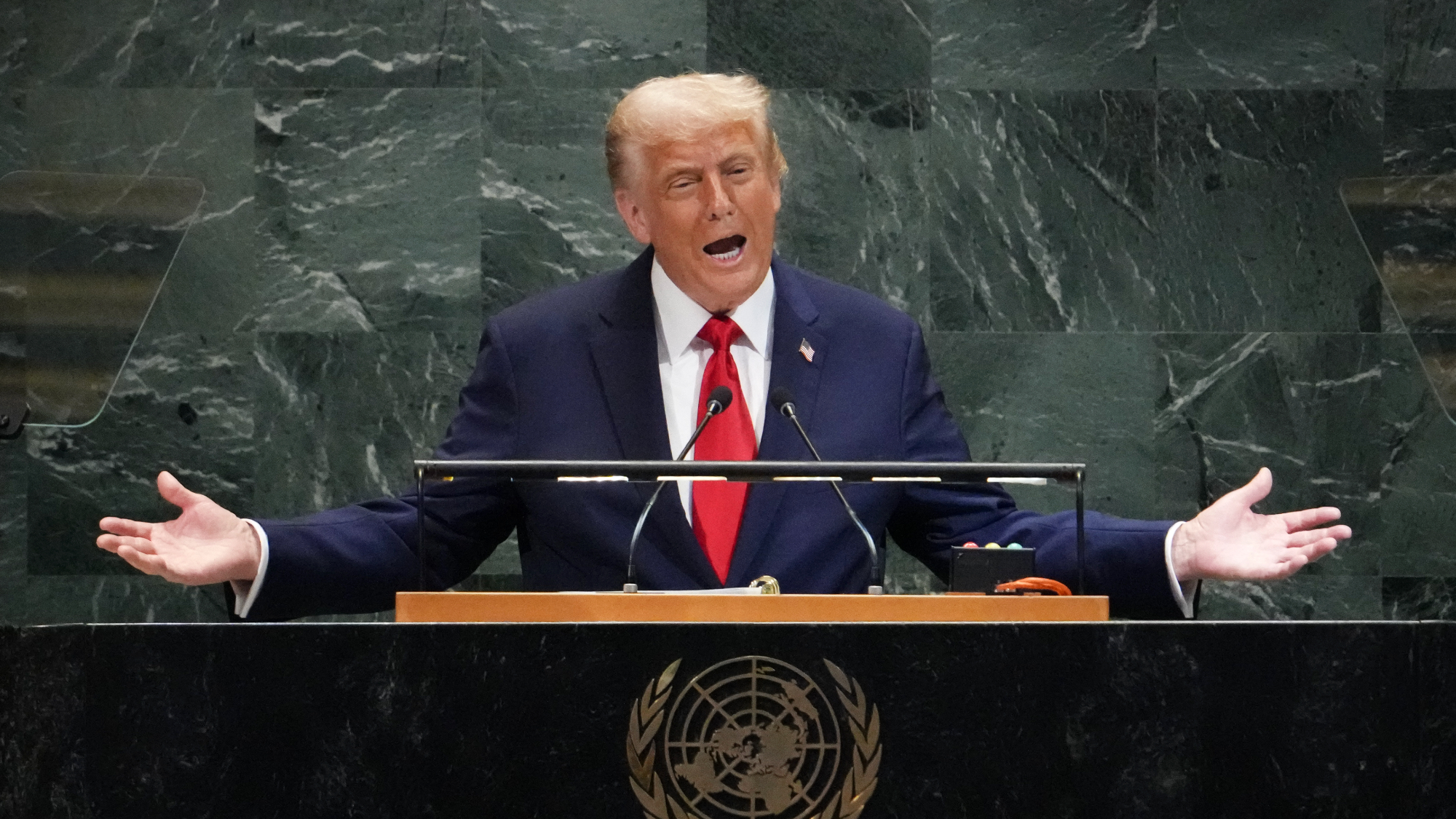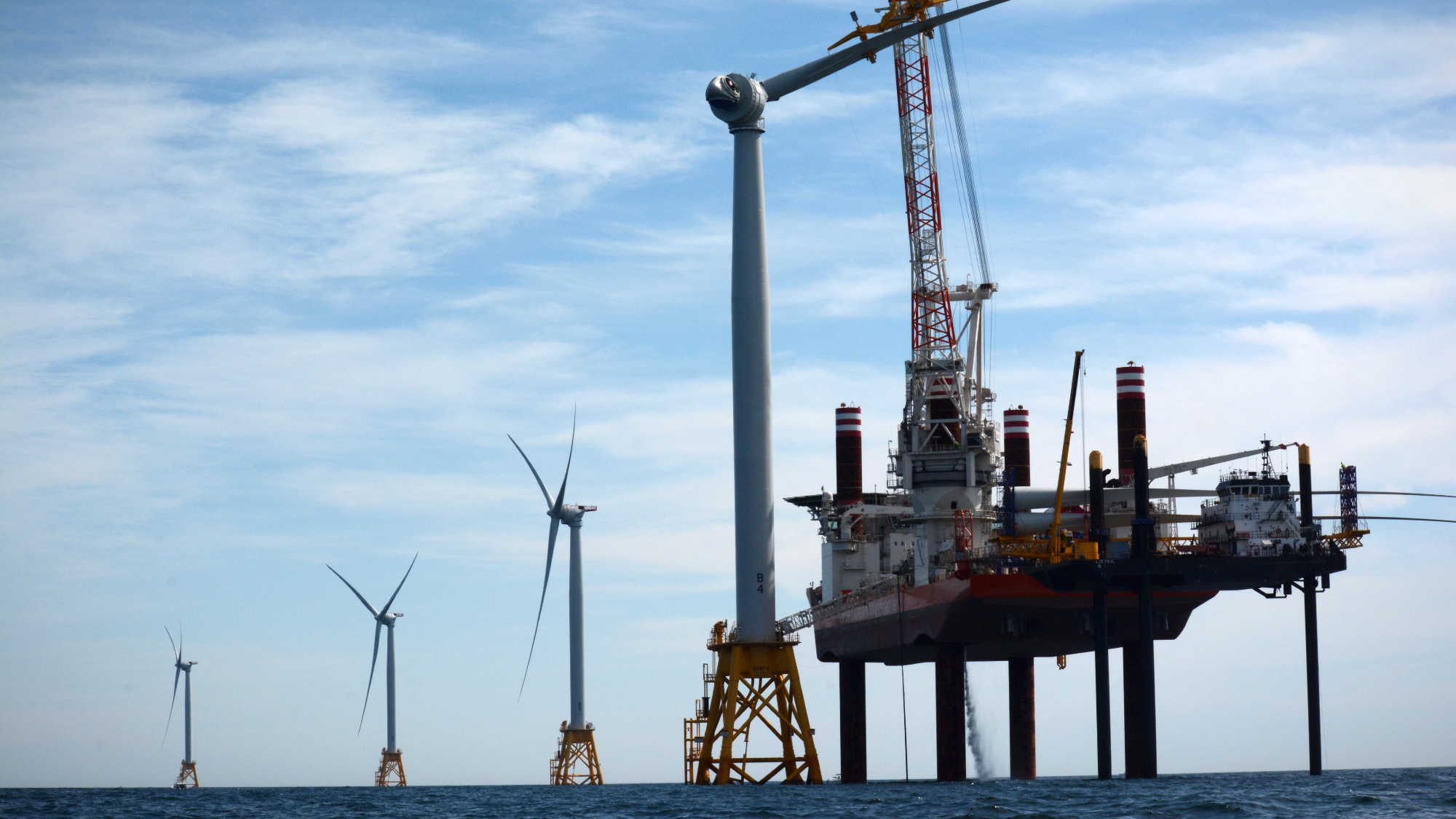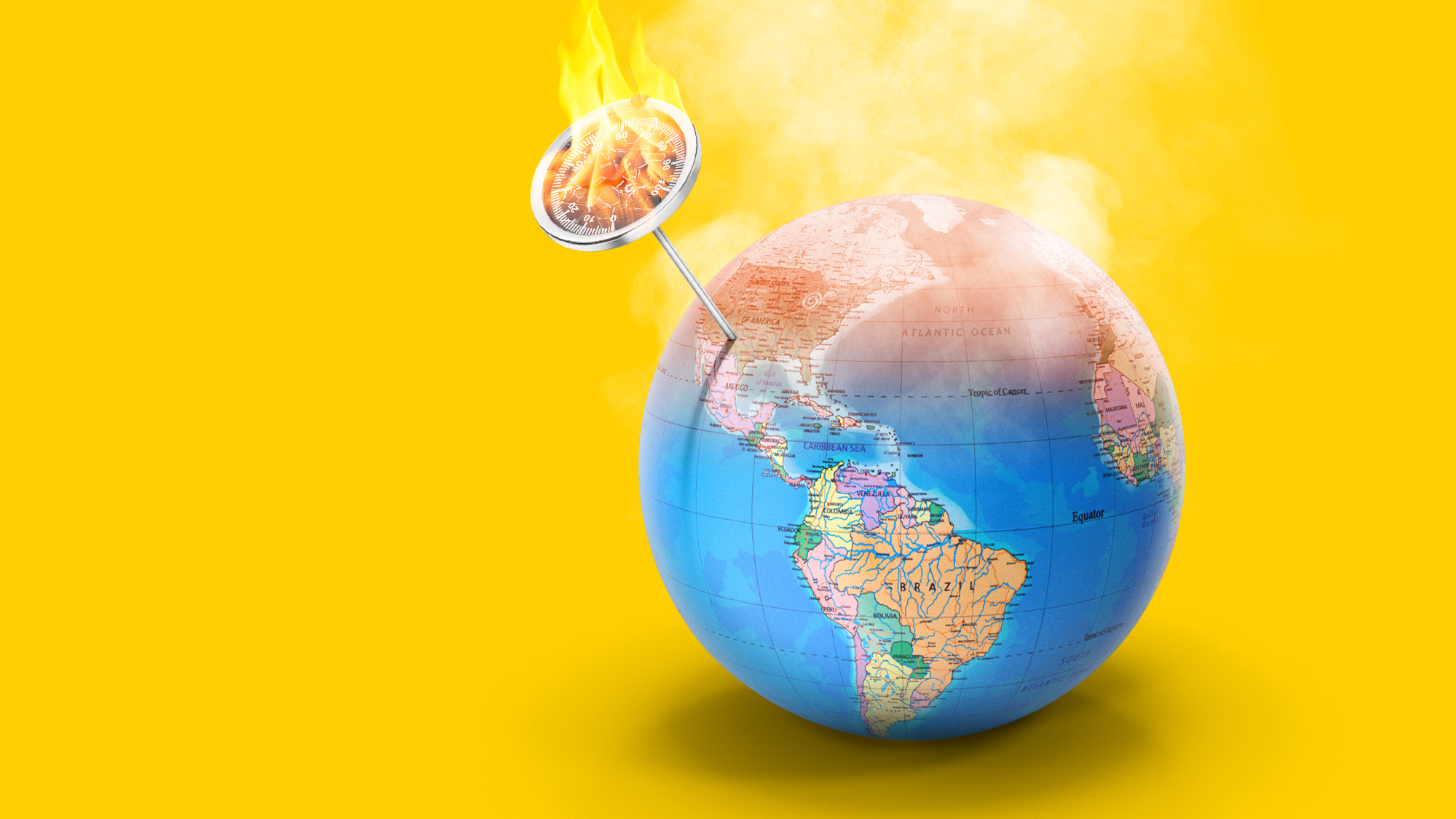The Supreme Court's surprising blow to oil companies
The court says climate cases will be handled at the state level, causing friction between oil companies and environmentalists


A free daily email with the biggest news stories of the day – and the best features from TheWeek.com
You are now subscribed
Your newsletter sign-up was successful
The U.S. Supreme Court announced that it would not hear appeals of climate cases from oil companies. This was seen as a rather surprising move for the conservative-leaning court, essentially allowing state climate rulings and laws to hold. In general, state courts are "often seen as more favorable to plaintiffs than federal court," according to Reuters. A number of states have filed suits against oil companies seeking environmental and climate damages as a result of their operations and will now have the cases addressed in state courts.
The move could potentially cost oil companies like Chevron and ExxonMobil billions of dollars as state environmental laws tend to be stricter than federal laws, according to E&E News. An important distinction is that the court's decision found that the "Clean Air Act does not completely bar state law claims regarding interstate pollution," meaning "state lawsuits might be quashed by the Clean Air Act."
Some view the high court's decision as a victory for the climate and a "major threat to the oil industry," while others see it as not a good way of tackling climate change.
The Week
Escape your echo chamber. Get the facts behind the news, plus analysis from multiple perspectives.

Sign up for The Week's Free Newsletters
From our morning news briefing to a weekly Good News Newsletter, get the best of The Week delivered directly to your inbox.
From our morning news briefing to a weekly Good News Newsletter, get the best of The Week delivered directly to your inbox.
'Will do nothing to advance global climate solutions'
Leaving climate decisions to state courts "will do nothing to advance global climate solutions, nothing to reduce emissions, and nothing to address climate-related impacts," according to Theodore Boutrous, a legal representative for the oil company Chevron. "Climate change is an issue of national and global magnitude that requires a coordinated federal policy response, not a disjointed patchwork of lawsuits in state courts across multiple states."
These lawsuits are highly political and "liberal cities and their trial lawyer allies rightly suspect they can secure big payouts and punishing injunctive terms in their own state courts," states Donald Kochan in The Hill. He adds that it's "not right or fair" to single out these energy companies "while ignoring other industries and carbon emitters" and that "liberal mayors probably don't expect their climate lawsuits to actually fix climate change."
The Supreme Court's decision is highly procedural and isn't necessarily going to go in favor of the plaintiffs. In turn, the impact of the high court's decision is being "overstated," according to Mona Dajani of Shearman & Sterling LLP in E&E News. "It's being perceived as a significant victory for climate justice and those who believe they have been harmed by climate change, but at the end of the day, it's a narrow, procedural decision that will now be decided in state court."
'Big Oil companies have been desperate to avoid trials in state courts'
Oil companies will finally have to answer for the damage they have caused to the environment. "After decades of climate change deception by the fossil fuel defendants, and now nearly half a decade of delay tactics in our lawsuit to hold them accountable for it, our residents, workers, businesses and taxpayers are ready for their day in court," says Peter Neronha (D), the attorney general of Rhode Island, one of the states that filed a lawsuit.
A free daily email with the biggest news stories of the day – and the best features from TheWeek.com
State laws also tend to be stricter on climate than federal laws, and "Big Oil companies have been desperate to avoid trials in state courts," says Richard Wiles of the environmental group Center for Climate Integrity, to NBC News. This is because "they will be forced to defend their climate lies in front of juries." He argues that companies have gotten away with being deceptive and "today the Supreme Court declined to bail them out."
The court's decision also comes at a time when climate change is becoming more of a pressing issue and fossil fuel usage and extraction is one of the largest contributors. "Since we filed this case nearly five years ago, the climate crisis has worsened, the costs to Baltimore taxpayers are skyrocketing, and the defendants have pocketed trillions of dollars in profits while trying to dodge accountability for their deception," says Sara Gross, the chief of the Affirmative Litigation Division in the Baltimore City Department of Law, in a statement. "This was the right decision, and it is time to prepare for trial."
Devika Rao has worked as a staff writer at The Week since 2022, covering science, the environment, climate and business. She previously worked as a policy associate for a nonprofit organization advocating for environmental action from a business perspective.
-
 How the FCC’s ‘equal time’ rule works
How the FCC’s ‘equal time’ rule worksIn the Spotlight The law is at the heart of the Colbert-CBS conflict
-
 What is the endgame in the DHS shutdown?
What is the endgame in the DHS shutdown?Today’s Big Question Democrats want to rein in ICE’s immigration crackdown
-
 ‘Poor time management isn’t just an inconvenience’
‘Poor time management isn’t just an inconvenience’Instant Opinion Opinion, comment and editorials of the day
-
 Trump’s EPA kills legal basis for federal climate policy
Trump’s EPA kills legal basis for federal climate policySpeed Read The government’s authority to regulate several planet-warming pollutants has been repealed
-
 Supreme Court upholds California gerrymander
Supreme Court upholds California gerrymanderSpeed Read The emergency docket order had no dissents from the court
-
 Trump pulls US from key climate pact, other bodies
Trump pulls US from key climate pact, other bodiesSpeed Read The White House removed dozens of organizations from US participation
-
 How robust is the rule of law in the US?
How robust is the rule of law in the US?TODAY’S BIG QUESTION John Roberts says the Constitution is ‘unshaken,’ but tensions loom at the Supreme Court
-
 Why is Trump killing off clean energy?
Why is Trump killing off clean energy?Today's Big Question The president halts offshore wind farm construction
-
 Trump halts wind power projects, citing ‘security’
Trump halts wind power projects, citing ‘security’Speed Read
-
 Trump aims to take down ‘global mothership’ of climate science
Trump aims to take down ‘global mothership’ of climate scienceIN THE SPOTLIGHT By moving to dismantle Colorado’s National Center for Atmospheric Research, the White House says it is targeting ‘climate alarmism’
-
 ‘It’s ironic in so many ways’
‘It’s ironic in so many ways’Instant Opinion Opinion, comment and editorials of the day
